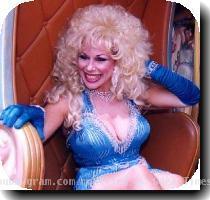A wiser, healthy Marianne Faithfull allows herself to get nostalgic with new covers album
By Charles J. Gans, APMonday, November 9, 2009
A more confident Faithfull puts pain behind her
NEW YORK — Marianne Faithfull has never been much for nostalgia throughout a roller-coaster career that’s found her constantly reinventing herself. But when her band played “As Tears Go By” on her fall U.S. concert tour, she found herself flashing back to where her wild ride all began.
“If you’d have told me that at 62, I’d still be singing ‘As Tears Go By’ to a rapt audience, I couldn’t imagine that,” says Faithfull. “It’s incredibly moving for me. It’s like (turning) back the years.”
The song takes Faithfull back to 1964 when the 17-year-old convent school girl turned up at a party at an art gallery owned by her future first husband, John Dunbar. Andrew Oldham, the Rolling Stones’ manager, spotted the blonde and asked if she could sing.
“The first party I went to in London where I was discovered by Andrew Oldham — all the Beatles were there and the Stones were there too,” says Faithfull. Soon after, Oldham brought the soprano with an angelic voice into the studio to record the melancholy “As Tears Go By,” the first song co-written by Keith Richards and soon-to-be boyfriend Mick Jagger.
“It’s a strange song to get a 17-year-old to sing. It’s all about a woman looking back on her youth, not participating, I couldn’t really feel it… But now I can really feel it and it’s very beautiful… I got to the right age where the woman in the song is,” says Faithfull, who now sings the song in her world-weary contralto voice roughened by too much tobacco and booze in her colorful past.
But Faithfull has little in common with the song’s protagonist who is content “to sit and watch” as her life goes by.
“I like to be involved in every time as it goes past,” says Faithfull, interviewed over lunch at an Italian restaurant in lower Manhattan. “I want to write a new script for myself.”
The latest script is her new album “Easy Come, Easy Go,” on which she interprets songs spanning nearly a century of popular music from Duke Ellington and Dolly Parton to Neko Case and the Decembrists. It has a contemporary feel thanks to collaborations with younger musicians such as Chan Marshall a/k/a Cat Power, and two children of her musician friends, Rufus Wainwright and Sean Lennon.
“It’s not just an old person singing covers, no, thank God,” she says, distinguishing it from albums by contemporaries like Rod Stewart. It’s also stylistically eclectic — a mix of jazz, blues, country, folk and rock — because she explains “nobody listens to one style of music, nor do I.”
Faithfull is proud of her role as muse to the Rolling Stones in the ’60s, inspiring such songs as “You Can’t Always Get What You Want,” ”Wild Horses, and “Sister Morphine” (for which she belatedly received credit for writing the lyrics).
The album closes poignantly with Faithfull and Richards joining voices on Merle Haggard’s death row ballad “Sing Me Back Home,” singing lyrics like “Make my old memories come alive.”
“I think I’m ready to do that now. I wasn’t before,” says Faithfull, who has made a successful recovery after being diagnosed with breast cancer in 2006. “I’ve been very anti-nostalgia all my life, always thinking about what I’m going to do next rather than what I’ve done. I think maybe this is a good moment for me to just sit on my haunches and reflect.”
Today, she says little remains of the sex, drugs and rock ‘n’ roll lifestyle of her youth that claimed so many of her friends.
“I’m very professional. I don’t use drugs and I don’t drink… I can’t help thinking that that’s one of the reasons that everything is so good in life,” she says, sipping a glass of sparkling water. “I’m a workaholic now. There’s always sex.”
Faithfull teamed again on the album with Hal Willner, who produced her last covers album in 1987, “Strange Weather,” her first album after undergoing rehab. It marked her resurrection as an avant-cabaret artist and masterful song interpreter.
“She is our Lotte Lenya, our (Marlene) Dietrich, our (Edith) Piaf. You can’t learn to sing like that,” says Willner. “None of them were trained really and their voice was what they’ve been in their life… Marianne comes from rock and roll and pop, so her roots are different than those classic singers. But I do believe she’s a treasure.”
They selected songs that she felt a personal connection to — many of which are like snapshots into different chapters of her life, like Ellington’s “Solitude,” performed by her favorite singer Billie Holiday.
“Solitude is probably my natural condition,” she says. “I am very solitary…. I was an only child… although there’s a lot of pain in that song too… My long-term relationship (with manager Francois Ravard) broke up just after I made the album… so now when I sing ‘Solitude’ it has a particular passion.”
Smokey Robinson’s “Ooh Baby Baby” (performed with Antony Hegarty), which features the line “Mistakes, I know I’ve made a few,” also hits close to home: “I wish I hadn’t done drugs. It was a waste of my time and a huge handicap. It didn’t help at all.”
Faithfull says it’s taken a long time to get over the anger that found voice on her 1979 punk-infused comeback album “Broken English” — following a lost decade in which she succumbed to heroin addiction and spent time living on the streets of London’s Soho after her tabloid-sensationalized breakup with Jagger. That’s when she established herself as a songwriter in her own right with such songs as the obscenity-laden “Why’d Ya Do It?” She says “Easy Come, Easy Go” reflects how much better she feels about herself now.
“I’m proud of this record. It’s coming from a confident and knowing what I want to do kind of a place,” says Faithfull. “I’m really healthy and enjoying my work a lot… I think this really is a very wonderful part of my life.”
____
On the Net:
www.mariannefaithfull.org.uk
Tags: Celebrity, Concerts, Country Music, Dolly Parton, Music, New York, New York City, North America, Rock Music, United States

